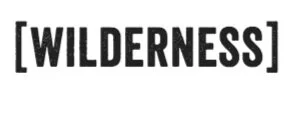Emilia Phillips
My First Kiss Was in a Room Where They Polish Lenses for Eyeglasses
Against some kind of machinery he said was for grinding.
Fourteen and thirteen, those ages of compendious entendre.
And there he was in black slacks, a black shirt, and a black tie
on Christmas Eve. A Judas Priest tee under the whole ensemble.
And his great and deciduous grief? That his mother had ironed the sleeves
of his shadow and then threshed his cowlick while he played
an unpauseable game. A sneak with a comb between her teeth.
A true pirate. His hair was parted faultlessly down the middle
like the Red Sea, and it was so black and so full
of gel I couldn’t help but think of those pelicans
and seals I saw on the news rescued from a gulf oil
spill that were sudsed in baby pools with a dish detergent
named Dawn by scientists who were only yellow
gloves. And I could taste his cologne before it happened—
as if I’d been frenched first by butane, a menthol
cigarette, and Pine Sol, a comorbid smack that knelled migraine.
But there was something sweet underneath it all. (I was hopeful
at least.) Something like lemon candy, a lozenge I let dissolve
on my tongue. (A yes, unspoken.) It was his family
business—sight, frames, and glass. And, somehow, they had a private chapel
in the back, where I’d been given a communion of a single oyster
cracker and grape juice from concentrate in a waxed paper cup.
I was at the age where I had stopped believing in most
everything, except love. But that wasn’t
what it was, even if that’s what I wanted. I’d seen his grandfather in commercials
shave off half his beard for a buy-one-pair-get-one-half-price sale.
But what then did I know of loss? And of losing
part of oneself to someone else? That came much later.
(Although I couldn’t see it happening as it happened.)
It was there in my eyes, someone said. And then I saw it, yes, in my reflection.
When the Phlebotomist Stuck the Needle in Me, I Looked Away Only to See a TV on Which a Chef Was Injecting Pork Loin With Marinade
In love, I am as effusive as an opened
artery. No, as gravy
on flat china, with nothing, no biscuit or hardcrust
bread, to sop it all up. And when am I not in love?
Or hungry? But in that moment, I was
eaten by dread, my stomach like a potbellied goose
egg rolling in the boil. I chewed my cheek,
sucked my lip until my mouth went wet
again and I could swallow
the thought of being cruel
sinew, a machine of hunger
overseen by a guilt
computer. Bright and glistening maw
with a bitten tongue, purpled
at its suture. When I gave you up,
I ate a lot
of chocolate, the cheap milky kind, and let it dissolve
on my tongue as slow as spring
to come. Sometimes, having a body
feels a lot like being fluent in a written-only
language, something I could never
say with the taut bouquet
in my throat. I once knew a guy covered in tattoos,
from the hairless mounds
of his slender ankles to just beneath his starched shirt
collar, who fainted whenever
he had to give a little vial of red.
The phlebotomist tells me it’s always the men
who faint, never the women.
And I believe it. Some boys in my middle school
coughed cottage cheese whenever I wore
a skirt. Which was every day.
Their disgust with the body unlimited.
In a private browser, I watch a woman bite
another woman’s ass, her stretchmarks inlaid
like mother of pearl. Desire is the blue flame
of the world burning
into my skull. Sometimes I imagine eating
the eyes of men the way some people relish
the eyes of fish. Briny as food
served on poseyed china resurrected from a shipwreck.
Some Sentences Need to Be Written in Passive Voice
Once, when I thought I was dying, I lived
next to gunshots on Saturday mornings. A neighbor’s
practice on cameo targets. I’d pull the dogs inside by their collars.
And I’d read or half-read or pretend to and think
about walking out
into the line of fire. Sometimes the brain’s funny like that—
you pick up a can thinking it’s cola, too sweet and maybe a little flat,
only to wind up with a mouthful of your mother’s cigarette
butts. Half my life has been a bait
and switch. And my body, the biggest worm.
Once, I wasn’t and still was.
Later, I wanted something, which was an improvement.
I wanted to make love to a woman, but there was only a man.
I laid still beneath him like a trap door
that didn’t want to spring. And then she told me I made her dizzy
and I became a —
(That’s when I realized the tongue and heart are the strongest
muscles in the human body.)
Emilia Phillips (she/her/hers) is the author of three poetry collections from the University of Akron Press, most recently Empty Clip (2018), and four chapbooks, including Hemlock (Diode Editions, 2019). Her poems and lyric essays appear widely in literary publications including AGNI, American Poetry Review, Gulf Coast, The Kenyon Review, New England Review, Ploughshares, Poetry, and elsewhere. She’s an assistant professor in the MFA Writing Program and the Department of English at the University of North Carolina at Greensboro.

